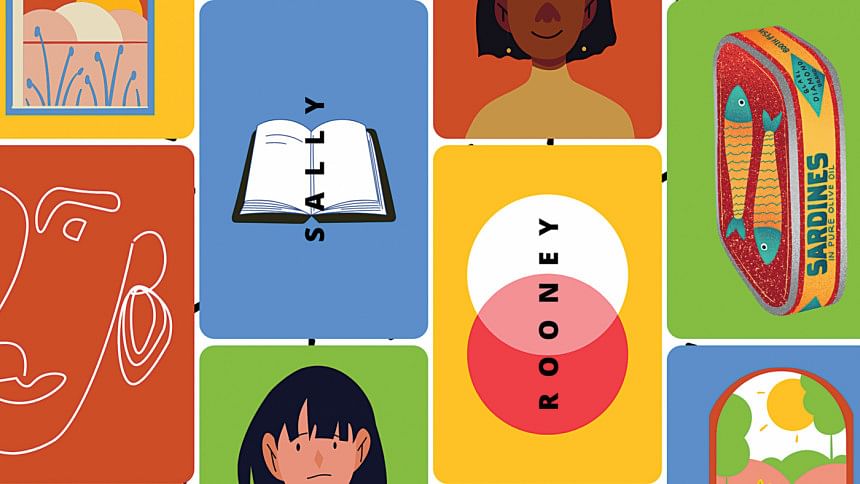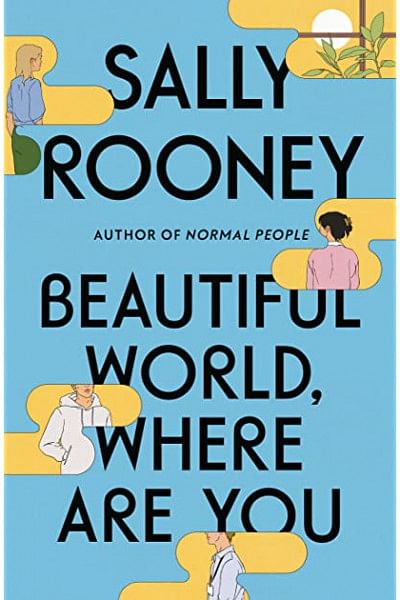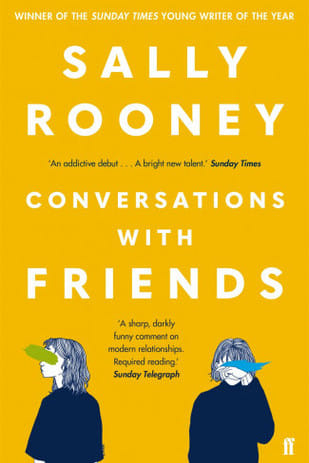Why you should read Sally Rooney after all

At this point, 30-year-old Irish novelist Sally Rooney well and truly needs no introduction. Her rapid ascension to fame and success following the publication of her first two novels is well-known. Her latest, Beautiful World, Where Are You (Farrar, Straus and Giroux, 2021), became the most reviewed book of all time. One can probably argue that too much has been said about Sally Rooney, especially the way almost everything she says and does seems to be deserving of scrutiny. But as someone who ended up reading all three of her novels in the span of one year (starting giddily with the wildly popular Normal People before being a little disappointed by Conversations and finally, ravenously, consuming Beautiful World), I have some thoughts about this.
Following my completion of Rooney's first two novels, I had this sense of liking her books despite myself. With vague, untraceable annoyance, I kept reading reviews and essays about Rooney's books, her economic yet emotive style, her being the "Salinger of the Snapchat generation" (read: a largely misguided summation and gross oversimplification of her relatability to Millennials) and, to no small degree, her celebrity status. I re-read passages in her books I had highlighted, spending too much time striking out or extending the accompanying annotations. I watched her interviews, surprised by the uncertainty in her voice sometimes. I shelved her books then brought them back to my bedside. I became obsessed with trying to make up my mind about the writer.
Once Beautiful World came out, I approached it cautiously. After all that Rooney rumination, I still didn't know what to expect. Another novel about a self-effacing 20-something protagonist, perhaps. Maybe more resolution-defying endings and frankly, kind of unlikable characters (oftentimes engaged in vapid sex scenes executed in prose far too economical for the purpose). Almost definitely more off-hand passages about capitalism and neo-imperialism exchanged between university-educated white Irish characters cozily conversing in some Dublin cafe. Well, I wasn't entirely wrong. And as most of the reviews of Beautiful World will tell you, it is by no means radically different from any of Rooney's previous novels. However, it is her best work yet.
In an email to a reader friend, I mentioned I was writing a review of Beautiful World (this was originally supposed to be that, but as we have established, there is an abundance of those), and in response he told me he had elected not to read it. "Even if it's extraordinarily different from other novels of this type", he wrote, "I am just tired of reading about white people's first world problems and things like that". I found that I couldn't disagree—but I discovered that Rooney does have something to offer.

Let me start with the primary point of contention surrounding Rooney's work. Maybe Rooney, a self-proclaimed Marxist, produces social commentary that does feel like footnotes rather than serious attempts at contributing to the conversation. But in a reality where social and political discourse feels increasingly frantic, to the point of fragmentation, we might forget that our intimate relationships can also be the site of adversarial social forces to play out. Alice, one of the protagonists of Beautiful World, is a celebrated novelist, engaged in an on-again, off-again relationship with a warehouse shift worker, Felix. Following an intimate encounter, Felix tells her, "The difference between what we're doing right now and what I do all day, I actually can't describe", referring to his work. "It's hard to believe I have to use the same body for both things." The social and financial disparities between Felix and Alice—a millionaire novelist—are profound and become pronounced at many points throughout the novel—this one being perhaps the most poignant because of how it goes to the heart of class considerations in a romantic relationship.
Disparities in class are examined in a platonic relationship as well in the novel. Eileen, the other protagonist, has been working as an editor for a very long time at a Dublin-based literary magazine, making not a lot of money and standing in stark contrast to her university best friend, Alice, who regularly complains about her own celebrity treatment. "I'm not trying to make you feel that your horrible life is in fact a privilege", Eileen writes to Alice in an email, "although by any reasonable definition it very literally is". This bitter remark might sound unfounded and harsh, but as the reader finds, not out of place in the context of the exchange.
The thing is, Rooney is not in denial about the fact that she might fall short of providing truly propulsive social commentary—in fact, she admits to not understanding how to "accommodate" her Marxist ideologies in her fiction—but she also asserts that there is no straightforward way of talking about class. In a widely circulated and almost belligerent critique of Rooney in The Point magazine, Becca Rothfeld writes, "[Rooney's novels] are not political novels but novels with characters who are lightly politicized, the way that people in Rooney's milieu (which is also mine) really are". But are these books really pretending to be anything else? And even if they were, I wonder, can there be decisive action without discourse, even if it takes the form of one or two conversations between friends in a work of fiction?
One of the many discursive, meditative and philosophical emails which Alice and Eileen share—and which make up the bulk of Beautiful World—is dedicated solely to the discussion of the contemporary novel and its place and significance in a world that is burning. "The novel works by suppressing the truth of the world," Alice writes in one of her emails, saying that reading fiction makes us care about seemingly inconsequential things like "whether people break up or stay together." In response, Eileen counters that someone on their deathbed is less likely to talk about human justice than their own close personal relationships.
Whether this is addressed to Rooney's naysayers or not, it is a worthwhile discussion to have. Because whether romantic, sexual, platonic or filial, relationships are how we connect to the world and ourselves, and Rooney offers a genuinely relevant insight into the variously tinged complexities of modern relationships. For many of us, our relationships are the most potent mode of existence. "There's no you without others," Rooney says in an interview. "There's no version of you that isn't constantly influenced by everyone else in your life." This is age-old wisdom, but may seem inconsistent with the hyper-individualistic culture we have assimilated into. I find that I agree completely with Rooney: relationships are all we have. And no form perhaps better explores relationships than the novel.

This is Rooney's specialty: her flair for the very specifically millennial psychological realism that has made her famous. She is able to examine with a practiced hand the disillusion that we all seem to feel, without ever alienating her characters. She seems to know how to approach emotions about relationships in a way that does not make them seem like some adversarial constraint but daily mysteries that are worth unraveling. She's interested in the asymmetry existing in human connections, in emotions as an external force—things most of us grapple with. Even while reading Conversations, my least favourite of her works (due to its sometimes befuddling mix of pretentiousness and mawkishness), I found myself shocked to be laid so bare every time the author delivered some inexplicably precise understanding of the interplay between what I thought were my peculiar interiorities and my convoluted relationships. Rooney is by no means my favourite author, but if the lives of white Dublin-residing millennials can resonate with a brown woman in Dhaka, I can comprehend that their creator might be doing something right.
And even if you agree with none of that, you probably won't be able to deny that Rooney is a singularly gifted writer. Her artistic evolution is difficult not to applaud, especially when you read her works chronologically (maybe you'll even come around to the realisation—like I have—that collectively, the concept of a "good novel" has unfortunately morphed beyond our capacity to enjoy things without taking them apart).
I just want to clarify that I don't love Sally Rooney. There are many things in her novels I could do without, like her obsession with submissive women and her exclusively thin, beautiful and white characters. But I'm tired of thinking I should hate her for writing stories which are concerned with relationships and character but are judged for being inadequate appraisals of social power structures.
It doesn't have to be a dismal sort of realisation, but it all comes down to one thing. All of the sense we're constantly trying to make of ourselves, sometimes abusing ourselves and others in the process, is nothing but that one thing. We are human: you, I, and everyone else, and we are, day in and day out, defined by our own search for a beautiful world. And who can hate Rooney for pointing that out?
Shehrin Hossain is a graduate of English literature. She can be reached at [email protected].

 For all latest news, follow The Daily Star's Google News channel.
For all latest news, follow The Daily Star's Google News channel. 








Comments